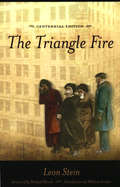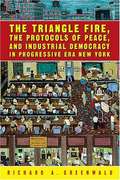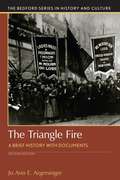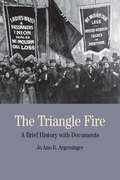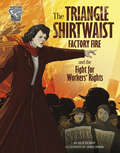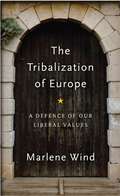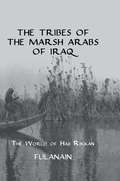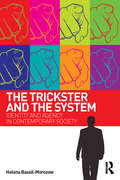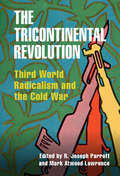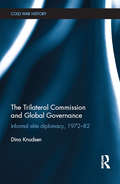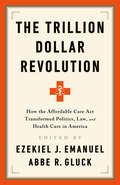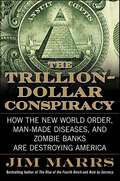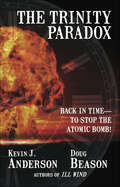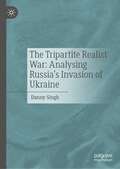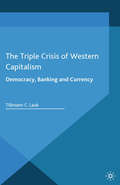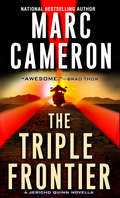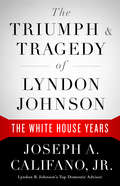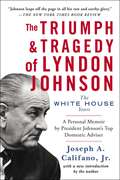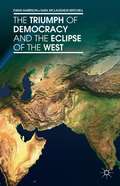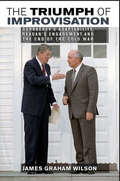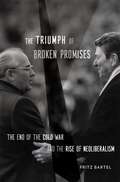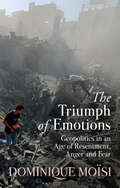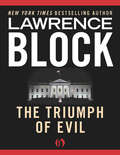- Table View
- List View
The Triangle Fire
by Leon SteinOn March 25, 1911, 146 employees of the Triangle Shirtwaist Company in New York City were killed in the span of a few minutes because no provision had been made for their safety in the event of fire. The Cornell edition of Leon Stein's 1962 account features 16 illustrations, some never before published. A new introduction by the journalist William Greider makes clear that accounts of dangerous workplaces and sweatshop conditions are still all-too-relevant today, ninety years after the fire. The story of the catastrophe and the doomed Triangle Shirtwaist workers, as told by one of the great labor journalists, will not soon be forgotten. Praise for the 1962 edition- "Stein . . . recreate[s] the tragic events of the fire in all their dramatic intensity. His moving account is a work of dedication. "-New York Times Book Review "With commendable restraint, [Stein] uses newspapers, official documents, and the evidence of survivors to unfold a story made more harrowing by the unemotional simplicity of its narration. "-Library Journal "Stein . . . suggests that the fire alerted the public to shocking working conditions all over the city and helped the unions organize the clothing industry, but his good taste keeps him from selling the reader any silver lining. A by-product of the careful research that has gone into this excellent narrative is an interesting sketch of the hard lives and times of working girls in the days when the business of America was business. "-New Yorker
The Triangle Fire, the Protocols of Peace, and Industrial Democracy in Progressive Era New York
by Richard GreenwaldAmerica searched for an answer to "The Labor Question" during the Progressive Era in an effort to avoid the unrest and violence that flared so often in the late 19th and early 20th century. In the ladies' garment industry, a unique experiment in industrial democracy brought together labor, management, and the public. As Richard Greenwald explains, it was an attempt to "square free market capitalism with ideals of democracy to provide a fair and just workplace." Led by Louis Brandeis, this group negotiated the "Protocols of Peace." But in the midst of this experiment, 146 mostly young, immigrant women died in the Triangle Factory Fire of 1911. As a result of the fire, a second, interrelated experiment, New York's Factory Investigating Commission (FIC) - led by Robert Wagner and Al Smith - created one of the largest reform successes of the period. The Triangle Fire, the Protocols of Peace, and Industrial Democracy in Progressive Era New York uses these linked episodes to show the increasing interdependence of labor, industry, and the state. Greenwald explains how the Protocols and the FIC best illustrate the transformation of industrial democracy and the struggle for political and economic justice.
The Triangle Fire: A Brief History with Documents
by Jo Ann E. ArgersingerThis book documents the historical Triangle factory fire of 1911 in New York which took the lives of 146 workers--most of them young immigrant women-- and became a powerful symbol of the peril industrial workers faced. Chronology, questions for consideration, a selected bibliography, and an index will enrich students' understanding of this historical moment.
The Triangle Shirtwaist Factory Fire and the Fight for Workers' Rights (Movements and Resistance)
by Julie GilbertIn November 1909, thousands of factory workers walked off the job to protest the terrible working conditions in New York City factories. Joining the picket lines was dangerous, with thugs and police officers harassing picketers, but the protests stirred action. Many factory owners finally agreed to some of the workers’ demands and improved conditions. But nothing changed for workers at the Triangle Shirtwaist Factory, and those workers would pay a high price for the company's dangerous conditions. In 1911, a devastating fire swept through the Triangle factory, killing 146 workers. In the months following the tragedy, the rights of workers finally gained real traction as the state government formed a safety commission and enacted new safety laws.
The Tribalization of Europe: A Defence of our Liberal Values
by Marlene WindTribalization is a global megatrend in today’s world. The election of Donald Trump, the Brexit vote, populist movements like Catalan separatism – together with democratic backsliding in Central and Eastern Europe – are all examples of tribalization. Fuelled by anti-globalism and identity politics, tribalization is drawing up the drawbridge to the world. It is putting cultural differences before dialogue, collaboration and universal liberal values. But tribalism is a dangerous road to go down. With it, argues Marlene Wind, we have put democracy itself in danger. Tribalism is not just about being pro-nation, anti-EU and anti-global. It is in many instances a bigger and more fundamental movement that casts aside the liberal democratic principles we once held in common. At a time when former defenders of liberal values are increasingly silent or have even joined the growing chorus of tribalists, this book is a wakeup call. Drawing on a wide range of examples from the UK and the US to Spain, Hungary and Poland, Wind highlights the dangers of identity politics and calls on people to stand up for democracy and the rule of law.
The Tribes Of The Marsh Arabs of Iraq: The World of Haji Rikkan
by FulanainThe Arab tribes of Iraq differ widely in custom but remain in all essentials of thought and conduct a distinctive and unique group. Their land embraces wide deserts, fertile fields and boundless swamps; its unique features shape the lives of its people. Taking the figure of Haji Rikkan as a central focus, the writer-traveller attempts to create a picture of Arab tribal life as a whole.
The Trickster and the System: Identity and agency in contemporary society
by Helena Bassil-MorozowFor centuries, the trickster has been used in various narratives, including mythological, literary and cinematic, to convey the idea of agency, rebellion and, often turbulent, progress. In The Trickster and the System: Identity and Agency in Contemporary Society, Helena Bassil-Morozow shows how the trickster can be seen as a metaphor to describe the psycho-anthropological concept of change, an impulse that challenges the existing order of things, a progressive force that is a-structural and anti-structural in its nature. The book is about being able to see things from an unusual, even ‘odd’, perspective, which does not coincide with the homogenous normality of the mass, or the social system, or a political ideology, or some other kind of authority. The Trickster and the System offers an analytical paradigm which can be used to examine relationships between tricksters and systems, change and stability, in a wide range of social, political and cultural contexts. It covers a range of systems, describes different types of tricksters and discusses possible conflicts, tensions and dialogues between the two opposing sides. One of the central ideas of the book is that social systems use shame as a tool to control and manage all kinds of tricksters – individuality, agency, creativity, spontaneity, innovation and initiative, to name but a few. The author argues that any society that neglects its tricksters (agents of change), ends up suffering from decay, stagnation – or even mass hysterical outbursts. The Trickster and the System: Identity and Agency in Contemporary Society provides a fresh perspective on the trickster figure in a variety of cultural contexts. It covers a range of psychological, cultural, social and political phenomena, from personal issues to the highest level of society’s functioning: self-esteem and shame, lifestyle and relationships, creativity and self-expression, media, advertising, economy, political ideology and, most importantly, human identity and authenticity. The book is essential reading for scholars in the areas of psychoanalysis, analytical psychology, myth, cultural and media studies, narrative analysis, cultural anthropology, as well as anyone interested in critical issues in contemporary culture. Helena Bassil-Morozow is a cultural philosopher, film scholar and academic writer whose many publications include Tim Burton: The Monster and the Crowd (Routledge, 2010) and The Trickster in Contemporary Film (Routledge, 2011). Helena is currently working on another Routledge project, Jungian Film Studies: the Essential Guide (co-authored with Luke Hockley). Her principal academic affiliation is the University of Bedfordshire, Faculty of Creative Arts, Technologies & Science.
The Tricontinental Revolution: Third World Radicalism and the Cold War (Cambridge Studies in US Foreign Relations)
by Mark Atwood Lawrence R. Joseph ParrottThe Tricontinental Revolution provides a major reassessment of the global rise and impact of Tricontinentalism, the militant strand of Third World solidarity that defined the 1960s and 1970s as decades of rebellion. Cold War interventions highlighted the limits of decolonization, prompting a generation of global South radicals to adopt expansive visions of self-determination. Long associated with Cuba, this anti-imperial worldview stretched far beyond the Caribbean to unite international revolutions around programs of socialism, armed revolt, economic sovereignty, and confrontational diplomacy. Linking independent nations with non-state movements from North Vietnam through South Africa to New York City, Tricontinentalism encouraged marginalized groups to mount radical challenges to the United States and the inequitable Euro-centric international system. Through eleven expert essays, this volume recenters global political debates on the priorities and ideologies of the Global South, providing a new framework, chronology, and tentative vocabulary for understanding the evolution of anti-imperial and decolonial politics.
The Trilateral Commission and Global Governance: Informal Elite Diplomacy, 1972-82 (Cold War History)
by Dino KnudsenThis book provides the first analysis of the Trilateral Commission and its role in global governance and contemporary diplomacy. In 1973, David Rockefeller and Zbigniew Brzezinski founded the Trilateral Commission. Involving highly influential people from business and politics in the US, Western Europe, and Japan, the Commission was soon preceived as constituting an embryonic or even shadow world government. As the first researcher to have accessed the Commission’s archives, the author argues that this study demonstrates that global governance and international diplomacy should be considered a product of overlapping elite networks that merge informal and formal spheres across national borders. This work has three immediate aims: to trace the background, origins, purposes, characteristics, and modus operandi of the Commission; to investigate the elite aspect of the Commission and how this related to democracy; and to demonstrate how the Commission contributed to diplomatic practices and policy-formulation at national and international levels. The overall purpose of this book is to evaluate the significance of the Trilateral Commission, with particular focus on the implications of its activities on the way we understand decision-making processes and diplomacy in modern, democratic societies. This book will be of much interest to students of the Cold War, US foreign policy, diplomacy studies, and IR in general
The Trillion Dollar Revolution: How the Affordable Care Act Transformed Politics, Law, and Health Care in America
by Ezekiel J Emanuel Abbe R. GluckTen years after the landmark legislation, Ezekiel Emanuel leads a crowd of experts, policy-makers, doctors, and scholars as they evaluate the Affordable Care Act's history so far.In March 2010, the Affordable Care Act officially became one of the seminal laws determining American health care. From day one, the law was challenged in court, making it to the Supreme Court four separate times. It transformed the way a three-trillion-dollar sector of the economy behaved and brought insurance to millions of people. It spawned the Tea Party, further polarized American politics, and affected the electoral fortunes of both parties.Ten years after the bill's passage, a constellation of experts--insiders and academics for and against the ACA--describe the momentousness of the legislation. Encompassing Democrats and Republicans, along with legal, financial, and health policy experts, the essays here offer a fascinating and revealing insight into the political fight of a generation, its consequences for health care, politics, law, the economy-and the future.
The Trillion-Dollar Conspiracy: How the New World Order, Man-Made Diseases, and Zombie Banks Are Destroying America
by Jim Marrs“Jim Marrs can’t be ignored. Few in this country shout about The Truth louder than he.”—Dallas ObserverIn The Trillion-Dollar Conspiracy, Jim Marrs, the New York Times bestselling author of Rule by Secrecy and The Rise of The Fourth Reich, offers a terrifying proposition: that the current economic collapse has been engineered by a tyrannous government and multinational corporations determined to enslave us. Read The Trillion-Dollar Conspiracy and find out how the New World Order, man-made diseases, and zombie banks are destroying America.
The Trinity Paradox
by Kevin J. Anderson Doug BeasonBy Kevin J. Anderson & Doug Beason. Activist Elizabeth Devane wished for an end to nuclear weapons. Surely, she thought, if they'd known what they were unleashing, the scientists of the Manhattan Project would never have created such a terrible instrument of destruction. But during a protest action, the unthinkable happened: a flash of light, a silent confusion, and Elizabeth awakes to find herself alone in a desolate desert arroyo ... and almost fifty years in the past. June 1944. Los Alamos, New Mexico. While the Allies battle in the Pacific and begin the Normandy invasion in Europe, Nazi Germany deviates from the timeline Elizabeth knows and uses its newfound nuclear arsenal against America. Somehow, someway, Elizabeth has been given the chance to put the genie back in the bottle ... yet could she—should she—attempt the greatest sabotage in history?
The Tripartite Realist War: Analysing Russia’s Invasion of Ukraine
by Danny SinghThe book offers a detailed analysis on Russia’s invasion of Ukraine. A book needs to be written on this to make sense, from a theoretical perspective, why this invasion has occurred and what the main actors are pursuing. The originality rests on testing main international relations theories: realism, liberalism and constructivism to the war that emerges with the practices and approaches during the Cold War to date from the North Atlantic Treaty Organisation (NATO), the Soviet Union (and now Russia) and Ukraine. The monograph commences with a historical overview of NATO and how it has engaged in expansionism policy to further contain Russia in contemporary international affairs with the accession of additional former Soviet states. This helps to explain the current Russian invasion of Ukraine that would attract great readership. The main argument presented rests on the pursuance of realist interests by NATO, Ukraine and Russia for containment, national security interests and as a response to the security dilemma respectively. This has served as the main catalyst of this conflict that has made diplomacy, international law and collective security measures problematic to implement.
The Triple Crisis of Western Capitalism: Democracy, Banking, and Currency
by T. LaukTillmann C. Lauk discusses law-making at the European level and argues that problems with EU legislation, banking regulation and currency debasement are due to a lack of democratic control. He insists on the need for radical reform both of banking and of international money and makes an important contribution to the debate on the future of finance.
The Triple Frontier (A Jericho Quinn Thriller)
by Marc CameronVENGEANCE HAS NO BORDERS It’s called the Triple Frontier—the volatile border zone between Paraguay, Brazil, and Argentina, one of the most lawless and deadly regions in the world. It’s a corrupt sanctuary where drug lords, Middle Eastern terrorists, slave traders, and dozens of other violent gangs operate with little or no interference from the law. For special agent Jericho Quinn, it’s the crossroads of hell. Especially when his younger brother Bo gets caught in the fire. Enlisted to protect the son of an IT mogul on a South American trip, Bo and his crew disappear after being kidnapped by a ruthless cartel. Jericho amasses a cartel of his own to take on the most vicious criminals on earth—far from home, without U.S. government sanction, and without mercy. Mess with the bull, you get the horns. Jericho Quinn style. Praise for the novels of Marc Cameron “Action-packed. Bloodbaths, explosions, treachery, and mayhem on a grand scale.” —Publishers Weekly “Fascinating characters with action off-the-charts. Masterful.”—Steve Berry “Blistering reads . . . Cameron’s books are riveting page-turners.” —Mark Greaney #1 New York Times bestselling author
The Triple Helix: The Soul of Bioethics
by Lisa BellantoniLisa Bellantoni argues that contemporary bioethics divides into two logically incommensurable positions: a cult of rights, which identifies the worth of human life with our autonomy, and a cult of life, which identifies human worth with the possession of a soul, and thereby, of human dignity.
The Triumph & Tragedy of Lyndon Johnson
by Joseph A. Califano Jr.OC My effort here is to give firsthand testimony on the man and president I saw, OCywith bark off, OCO as he used to say when he wanted me to describe a difficult situation cold and true, with no punches pulled. OC The Lyndon Johnson I knew was brave and brutal, compassionate and cruel, incredibly intelligent and infuriatingly insensitive, with shrewd and uncanny instinct for the jugular of his allies and adversaries. He could be altruistic and petty, caring and crude, generous and petulant, bluntly honest and calculatingly deviousOCoall within the same few minutes. OCOOCoJoseph A. Califano, Jr. Joe CalifanoOCoLyndon JohnsonOCOs closest domestic adviser during the White House yearsOCohas created a remarkable presidential portrait, a frank, tough-minded memoir that reveals not only the singular personality of LBJ, but the rough grain of American politics. More than previous biographers, scholars, or reporters, CalifanoOCowho worked day and night in the trenches with LBJOCoshows us who Johnson really was and recreates life in the White House at the height of the turbulent sixties. aaLyndon Johnson was bigger than lifeOCoand no one who worked for him ever forgot it. Writing with perception and energy, Califano captures his mentorOCOs lively, irascible spirit as he puts us in the White House alongside LBJ during such momentous events as the assassination of Martin Luther King and the wrenching violence that followed, the assassination of Robert Kennedy, the 1968 Democratic Convention, and the national trauma surrounding the Vietnam War. We see Johnson manipulate the economy and the Supreme Court; confront race riots in Watts, Newark, and Detroit; and deal with the Arab-Israeli Six Day War. We witness his achievements in the areas of education, health care, consumer safety, civil rights, environmental protection, and the arts. And we watch him squander his credibility, as he doggedly wages both his warsOCothe one against poverty and the one in VietnamOCodetermined to prevent the blood-shed in Southeast Asia from spoiling his dream of a Great Society at home. a"The Triumph & Tragedy of Lyndon Johnson" is an intimate portrait of a president who towering ambition for his country and himself ultimately led to his decision to surrender the arena in which he fought so hard. Joe Califano has added uniquely to our understanding of LBJ, whose achievements and mistakes mirror his own complex and contradictory nature. a"
The Triumph & Tragedy of Lyndon Johnson: The White House Years
by Joseph A. Califano Jr.From Lyndon Johnson's closest domestic adviser during the White House years comes a book in which "Johnson leaps out of the pages in all his raw and earthy glory" (The New York Times Book Review) that's been called "a joy to read" (Stephen Ambrose, The Washington Post Book World).Califano takes us into the Oval Office as the decisions that irrevocably changed the United States were being crafted to create Johnson's ambitious Great Society. He shows us LBJ's commitment to economic and social revolution, and his willingness to do whatever it took to achieve his goals. Califano uncorks LBJ's legislative genius and reveals the political guile it took to pass the laws in civil rights, poverty, immigration reform, health, education, environmental protection, consumer protection, the arts, and communications. President Lyndon Johnson was bigger than life--and no one who worked for him or was subjected to the "Johnson treatment" ever forgot it. As Johnson's "Deputy President of Domestic Affairs" (The New York Times), Joseph A. Califano's unique relationship with the president greatly enriches our understanding of our thirty-sixth president, whose historical significance continues to be felt throughout every corner of America to this day. A no-holds-barred account of Johnson's presidency, The Triumph and Tragedy of Lyndon Johnson is an intimate portrait of a President whose towering ambition for his country and himself reshaped America--and ultimately led to his decision to withdraw from the political arena in which he fought so hard.son's presidency, The Triumph and Tragedy of Lyndon Johnson is an intimate portrait of a President whose towering ambition for his country and himself reshaped America--and ultimately led to his decision to withdraw from the political arena in which he fought so hard.
The Triumph Of Democracy And The Eclipse Of The West
by Sara Mclaughlin Mitchell Ewan HarrisonThis book explores the paradox of the worldwide spread of democracy and capitalism in an era of Western decline. The rest is overtaking the West as Samuel Huntington predicted, but because it is adopting Western institutions. The emerging global order offers unprecedented opportunities for the expansion of peace, prosperity, and freedom. Yet this is not the 'end of history', but the beginning of a post-Western future for the democratic project. The major conflicts of the future will occur between the established democracies of the West and emerging democracies in the developing world as they seek the benefits and recognition associated with membership of the democratic community. This 'clash of democratizations' will define world politics.
The Triumph Of Improvisation
by James Graham WilsonIn The Triumph of Improvisation, James Graham Wilson takes a long view of the end of the Cold War, from the Soviet invasion of Afghanistan in December 1979 to Operation Desert Storm in January 1991. Drawing on deep archival research and recently declassified papers, Wilson argues that adaptation, improvisation, and engagement by individuals in positions of power ended the specter of a nuclear holocaust. Amid ambivalence and uncertainty, Mikhail Gorbachev, Ronald Reagan, George Shultz, George H. W. Bush, and a host of other actors engaged with adversaries and adapted to a rapidly changing international environment and information age in which global capitalism recovered as command economies failed. Eschewing the notion of a coherent grand strategy to end the Cold War, Wilson paints a vivid portrait of how leaders made choices; some made poor choices while others reacted prudently, imaginatively, and courageously to events they did not foresee. A book about the burdens of responsibility, the obstacles of domestic politics, and the human qualities of leadership, The Triumph of Improvisation concludes with a chapter describing how George H. W. Bush oversaw the construction of a new configuration of power after the fall of the Berlin Wall, one that resolved the fundamental components of the Cold War on Washington's terms.
The Triumph of Broken Promises: The End of the Cold War and the Rise of Neoliberalism
by Fritz BartelA powerful case that the economic shocks of the 1970s hastened both the end of the Cold War and the rise of neoliberalism by forcing governments to impose austerity on their own people.Why did the Cold War come to a peaceful end? And why did neoliberal economics sweep across the world in the late twentieth century? In this pathbreaking study, Fritz Bartel argues that the answer to these questions is one and the same. The Cold War began as a competition between capitalist and communist governments to expand their social contracts as they raced to deliver their people a better life. But the economic shocks of the 1970s made promises of better living untenable on both sides of the Iron Curtain. Energy and financial markets placed immense pressure on governments to discipline their social contracts. Rather than make promises, political leaders were forced to break them.In a sweeping narrative, The Triumph of Broken Promises tells the story of how the pressure to break promises spurred the end of the Cold War. In the West, neoliberalism provided Western leaders like Ronald Reagan and Margaret Thatcher with the political and ideological tools to shut down industries, impose austerity, and favor the interests of capital over labor. But in Eastern Europe, revolutionaries like Lech Walesa in Poland resisted any attempt at imposing market discipline. Mikhail Gorbachev tried in vain to reform the Soviet system, but the necessary changes ultimately presented too great a challenge.Faced with imposing economic discipline antithetical to communist ideals, Soviet-style governments found their legitimacy irreparably damaged. But in the West, politicians could promote austerity as an antidote to the excesses of ideological opponents, setting the stage for the rise of the neoliberal global economy.
The Triumph of Emotions: Geopolitics in an Age of Resentment, Anger and Fear
by Dominique MoisiFifteen years ago, Dominique Moïsi famously argued that the world was increasingly shaped by a ‘clash of emotions’ as the old politics of ideology faded. Asia was hopeful; the West was fearful; and much of the rest of the world felt humiliated. Moïsi warned that this was a dangerously unpredictable world, that authorities had a responsibility to keep tempers cool. In this bold new book, Moïsi reports that they have failed: We live in a world where emotions have triumphed.One of the world’s most influential analysts of international affairs, Moïsi explains how and why the problems he identified in his path-breaking The Geopolitics of Emotion have deepened. More insidious emotions have been provoked by the rise of nationalism and populism, the retreat from globalization, the acceleration of climate change, and the dark sides of information technology. Raw emotions such as anger and even hatred have triumphed both in international and domestic politics—evident not just in leaders’ extreme rhetoric but now in open war in Ukraine. Against the backdrop of the US-China rivalry, a new Tripolar Order is emerging, featuring hope and resentment in the Global South, humiliation and anger in the Global East, and fear and resilience in the Global West.The Triumph of Emotions is an illuminating and passionately argued book for our fraught times.
The Triumph of Empire
by Michael KulikowskiMichael Kulikowski takes readers into the political heart of imperial Rome, beginning with the reign of Hadrian, who visited the farthest reaches of his domain and created stable frontiers, to the decades after Constantine the Great, who overhauled the government, introduced a new state religion, and founded a second Rome.
The Triumph of Evil
by Lawrence BlockAn assassin targets the political leaders of the United States, causing a domino effect that could bring down the government and alter our way of life forever Assassinations, political upheaval, student riots, and conservative rage. In the thick of the Cold War it was the perfect recipe for revolution, and it only took a gentle push to send a nation toppling into dictatorship. But what if it happened in the Untied States? Miles Dorn can make it so. A hired killer with no past and no future, he steps out of retirement and sets his sights on the political leaders holding America back from the brink. A Louisiana governor, a Detroit mayor, a bleeding-heart senator, and finally the vice president himself. When they fall, a tyrant will step forward and Dorn will disappear again. But as the death toll rises, he finds himself growing close to a civilian, a Summer of Love idealist who makes him question his path. Can he turn back before it's too late for him--and too late for America? This ebook features an illustrated biography of Lawrence Block, including rare photos and never-before-seen documents from his personal collection, and a new afterword written by the author.
